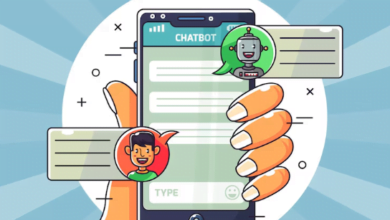googles 25e verjaardag A Look Back at Google’s 25 Years of Innovation

googles 25e verjaardag, the ubiquitous search engine and tech giant, celebrated its 25th birthday in September 2023. This milestone marks a remarkable journey, from a Stanford dorm room project to a company that has fundamentally reshaped how we access information, connect with the world, and navigate our daily lives. This article delves beyond the familiar logo and search bar to explore Google’s fascinating history, focusing on the period between 2000 and 2023, a time of explosive growth, bold acquisitions, and evolving societal impact.
The Dawn of a New Millennium: From Search Engine to Web Powerhouse (2000-2005)
The year 2000 saw Google solidify its dominance in the search engine market. The company’s innovative PageRank algorithm, which prioritized web pages based on their relevance and popularity with other sites, continued to attract users away from competitors like AltaVista and Yahoo. Google’s clean interface and lightning-fast search speeds further cemented its position as the go-to platform for information retrieval.
Beyond search, Google began to expand its offerings in the early 2000s. In 2001, Google Images launched, forever changing how we visually search for information. 2004 marked the arrival of Gmail, introducing a free, web-based email service that revolutionized email accessibility and storage capacity. This period also saw the launch of Google Scholar, a specialized search engine for academic publications, and Google Maps, which challenged traditional navigation tools with its interactive mapping and location-based services.
Going Bold: Acquisitions and the Rise of a Digital Ecosystem (2005-2010)
The mid-2000s witnessed Google’s aggressive acquisition strategy. In 2005, the company acquired Android, a nascent mobile operating system, a move that would prove pivotal in the years to come. 2006 saw the launch of Google Video, a competitor to YouTube, though it was eventually shut down in favor of the latter’s dominance. The most significant acquisition of this era came in 2006 with YouTube itself. Google recognized the potential of user-generated video content and made a strategic investment that would shape online video consumption for years to come.
This period also saw Google enter the social media realm with the launch of Orkut in 2004. While Orkut never achieved the global success of Facebook, it served as a testing ground for Google’s foray into social networking. Recognizing the growing importance of user-generated content, Google introduced Blogger in 2003, a free blogging platform that empowered individuals to share their voices online.
The Age of Mobile and the Android Revolution (2010-2015)
The decade of 2010 marked a significant shift towards mobile internet usage. Google, with its early acquisition of Android, was perfectly positioned to capitalize on this trend. The open-source nature of Android allowed for widespread adoption by device manufacturers, propelling it to become the dominant mobile operating system globally. This dominance translated into increased usage of Google services like Search, Maps, and Gmail on mobile devices, further solidifying the company’s position in the digital ecosystem.
In 2011, Google ventured into the social media space once again with Google+. While it garnered some initial traction, it failed to compete with the established giants like Facebook and Twitter. However, Google+ served as a valuable testing ground for features like multi-person video chats that would later be integrated into other Google products.
The Age of Artificial Intelligence and Cloud Computing (2015-2023)
The past decade has seen Google embrace artificial intelligence (AI) and cloud computing as core pillars of its future. In 2016, Google DeepMind, a subsidiary focused on AI research, made significant breakthroughs in machine learning, particularly with its AlphaGo program defeating the world champion in the complex game of Go. This achievement showcased the potential of AI in areas beyond entertainment.
Cloud computing became another major focus. Google Cloud Platform (GCP) emerged as a competitor to Amazon Web Services (AWS) and Microsoft Azure, offering businesses and organizations scalable and reliable cloud-based solutions.
Google also continued to refine its existing products and services. The introduction of Google Assistant in 2016 marked the company’s entry into the smart speaker market, taking on Amazon’s Alexa. Google Pixel smartphones, launched in 2016, offered a hardware platform showcasing Google’s software and AI capabilities.
Beyond the Search Bar: Google’s Societal Impact
Google’s influence extends far beyond its search engine and digital products. The company’s vast trove of data has raised concerns about privacy and user control. Issues of algorithmic bias and the potential for
Absolutely, here’s an expanded section on Google’s societal impact and some ongoing challenges:
Beyond the Search Bar: Google’s Societal Impact (Continued)
While Google’s innovations have undoubtedly improved our lives, the company’s influence raises critical questions about its societal impact. Here are some key areas of discussion:
-
Privacy and Data Collection: Google collects a vast amount of user data from search queries, browsing history, and use of its various products. Concerns exist about how this data is used, protected, and whether users have sufficient control over it. Initiatives like the General Data Protection Regulation (GDPR) in Europe aim to give users more control over their data, but the debate continues.
-
Algorithmic Bias: Google’s algorithms, which power search results, recommendations, and other features, can perpetuate societal biases. For instance, biased algorithms could lead to discriminatory results in job searches or portrayals of certain demographics. Addressing algorithmic bias requires ongoing efforts to ensure fairness and neutrality in Google’s technology.
-
Filter Bubbles and Echo Chambers: Personalized search results and news feeds can create “filter bubbles” where users are only exposed to information that confirms their existing beliefs. This can limit exposure to diverse perspectives and hinder critical thinking. Finding the right balance between personalization and serendipity in information access remains a challenge.
-
Digital Divide: Despite Google’s efforts to promote internet access through initiatives like Project Loon (balloon-powered internet), a significant digital divide persists globally. Millions of people still lack access to the internet, hindering their ability to benefit from Google’s services and information resources. Bridging the digital divide is crucial for ensuring equitable access to the digital world.
-
Innovation and Competition: While Google’s innovations have undeniably benefited society, concerns exist about the company’s dominance in certain sectors. Questions arise about potential stifling of competition and the need for a healthy balance within the tech industry.
The Road Ahead: Google’s Future
As Google enters its next quarter-century, it faces the challenge of navigating these complex societal issues while continuing to innovate. Here are some potential areas of focus:
-
Ethical AI Development: Ensuring transparency, accountability, and fairness in AI development will be crucial. Responsible AI practices can mitigate the risks of bias and ensure that AI benefits society as a whole.
-
Data Privacy and Security: Google must continue to prioritize user privacy and data security. Implementing robust data protection measures and empowering users with greater control over their data will be essential.
-
Bridging the Digital Divide: Efforts to expand internet access globally will be crucial for ensuring equitable participation in the digital world. Google’s resources and expertise can play a significant role in this endeavor.
-
Promoting Digital Literacy: Equipping users with the skills to navigate the digital world critically and responsibly is vital. Educational initiatives can help users understand how algorithms work, identify potential bias, and make informed decisions online.
-
Fostering a Healthy Tech Ecosystem: Collaboration with governments, regulators, and other tech companies will be essential for fostering a healthy and competitive tech ecosystem that benefits users and society at large.
By addressing these challenges and focusing on a responsible and inclusive future, Google can ensure its next 25 years are marked by positive societal impact and continued innovation.





